Cognitive Learning Theories
Door Kate Reed


1. Four distinct, hierarchical stages of development
1.1. Piaget theorized that these stages determine what a child can cognitively accomplish, depending on which stage the child is currently in:
1.2. Sensorimotor stage: represents trial and error with physical objects and symbolic thought
1.3. Preoperational stage: represents expansion of language, pretend play, and some intuitive thought
1.4. Concrete Operational stage: represents understanding perspectives of others, conservation, and class inclusion
1.5. Formal Operational stage: represents proportional reasoning of ratios, idealism, logical thinking of hypothetical ideas
2. Children are naturally curious
3. Constructivist
4. Assimilation and Accommodation
5. Jean Piaget
5.1. Clinical applications of Piaget's cognitive development:
6. Constructivism
7. Learning requires interaction
8. Applications in education using a Piaget model
8.1. Brain maturation determines abilities of child
8.2. Learning is a physical experience
8.3. Sociocognitive conflict
9. Piaget vs. Vygotsky
10. References
11. Knudsen, D., Patel, A., & Reed, K. (2016) EDF 6211, University of South Florida
12. Applications in education based on Vygotsky's sociocultural theory
12.1. Learning is a collaborative activity
12.2. ZPD serves as a guide for curriculum delivery and lesson planning
12.3. Learning should occur in a meaningful context
13. Constructivist
14. Lev Vygotsky
14.1. Clinical applications: Social construction of meaning
15. Sociocultural Theory
15.1. Adults translate to children the meaning of their environment through cognitive tools
15.2. Language
15.2.1. Children's thoughts become language
15.2.1.1. Private speech (self-talk) gradually becomes inner talk, which then mimics our thoughts.
15.3. Higher-order thought processes begin as social interactions
15.4. Zone of Proximal Development (ZPD)
15.4.1. ZPD is the upper limit of what a child is capable of learning. ZPD allows children to perform tasks with an adult, that would be improbable on their own.
15.4.1.1. Scaffolding and guided participation
